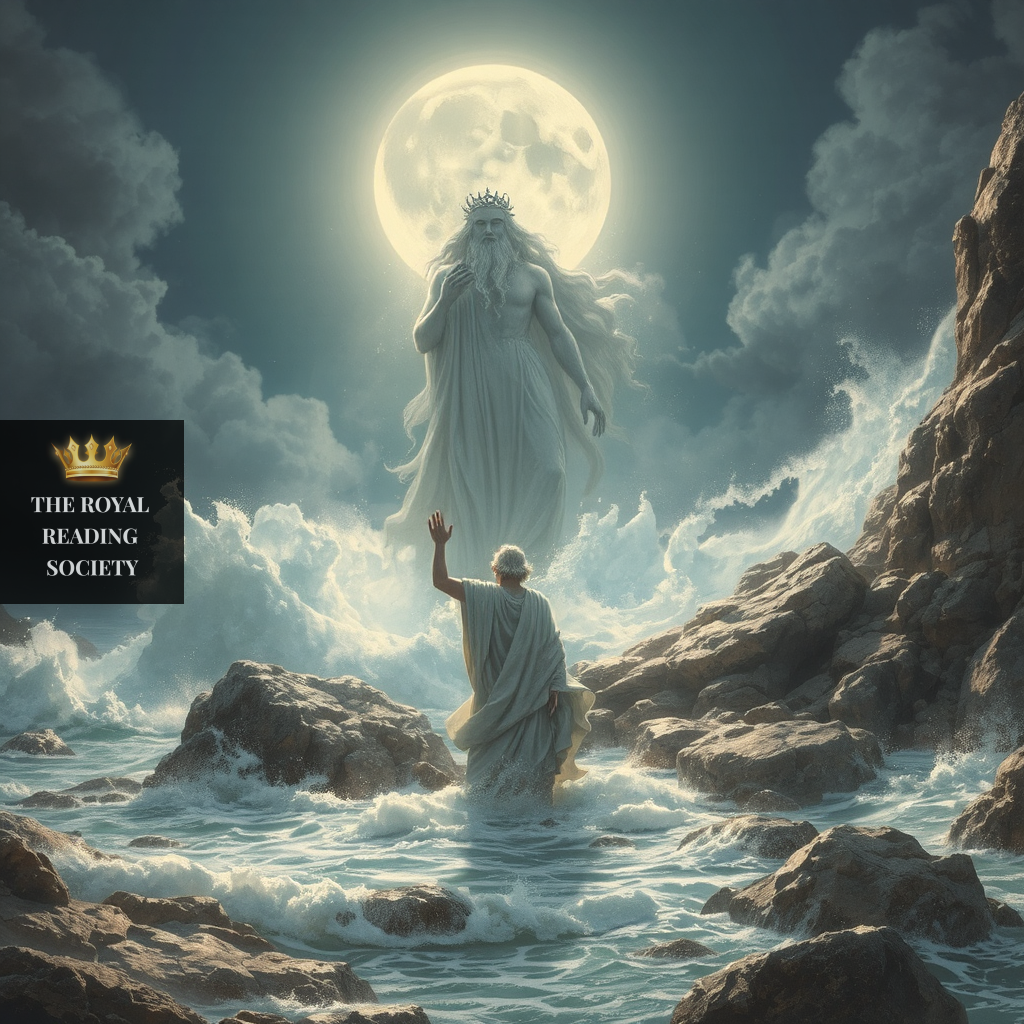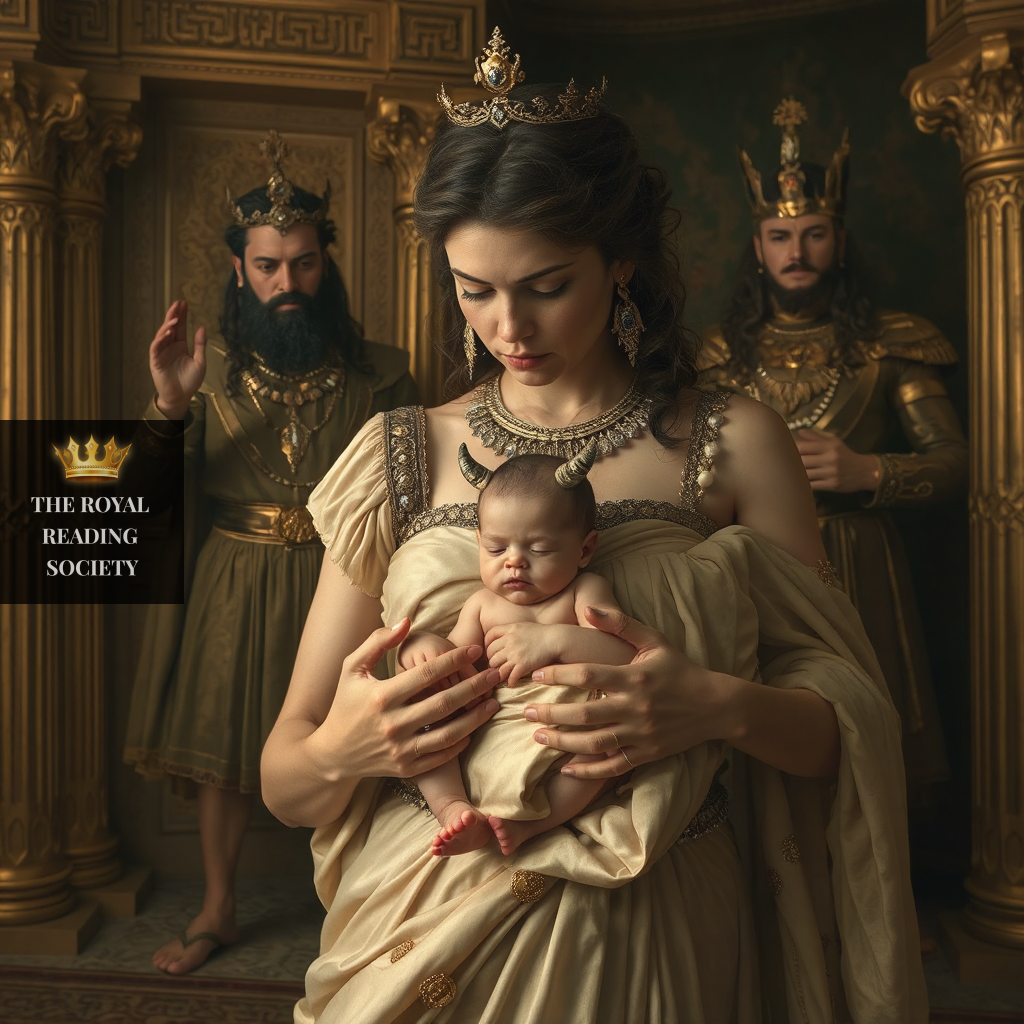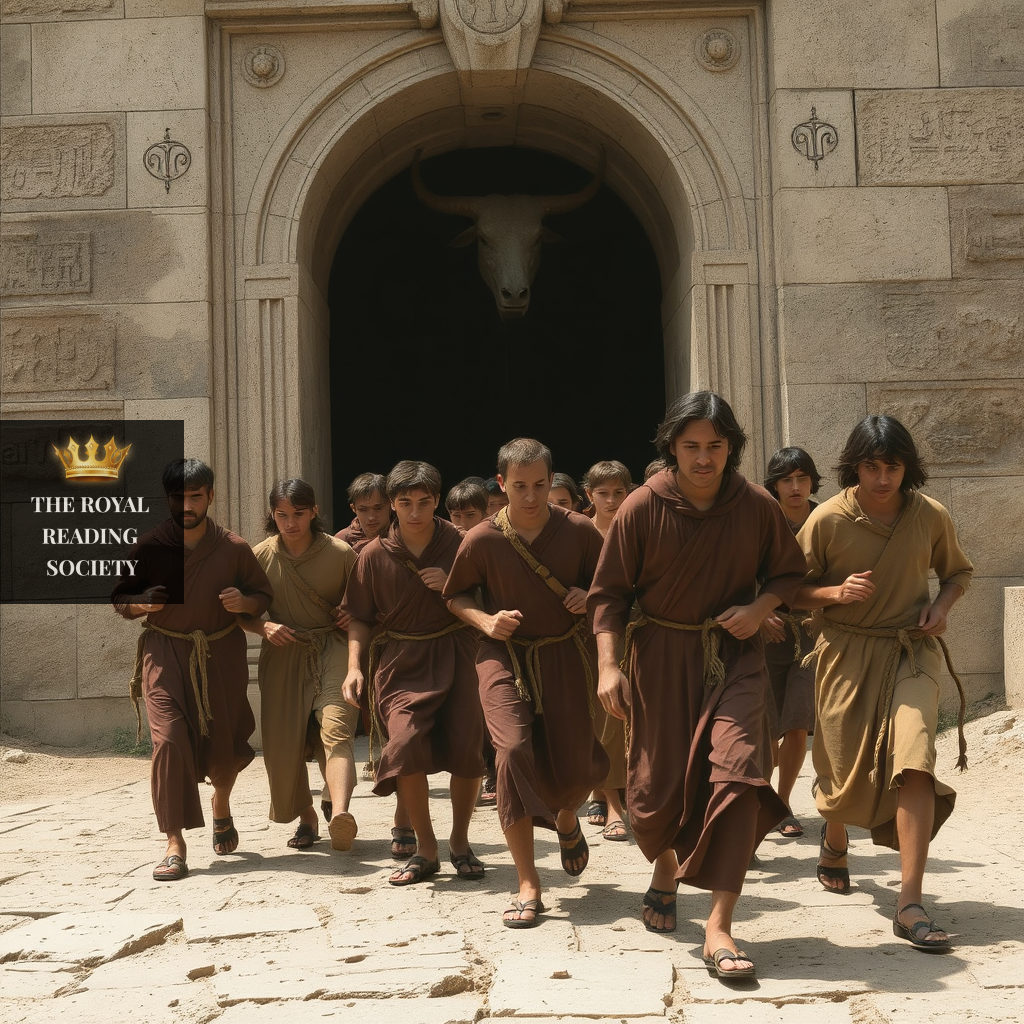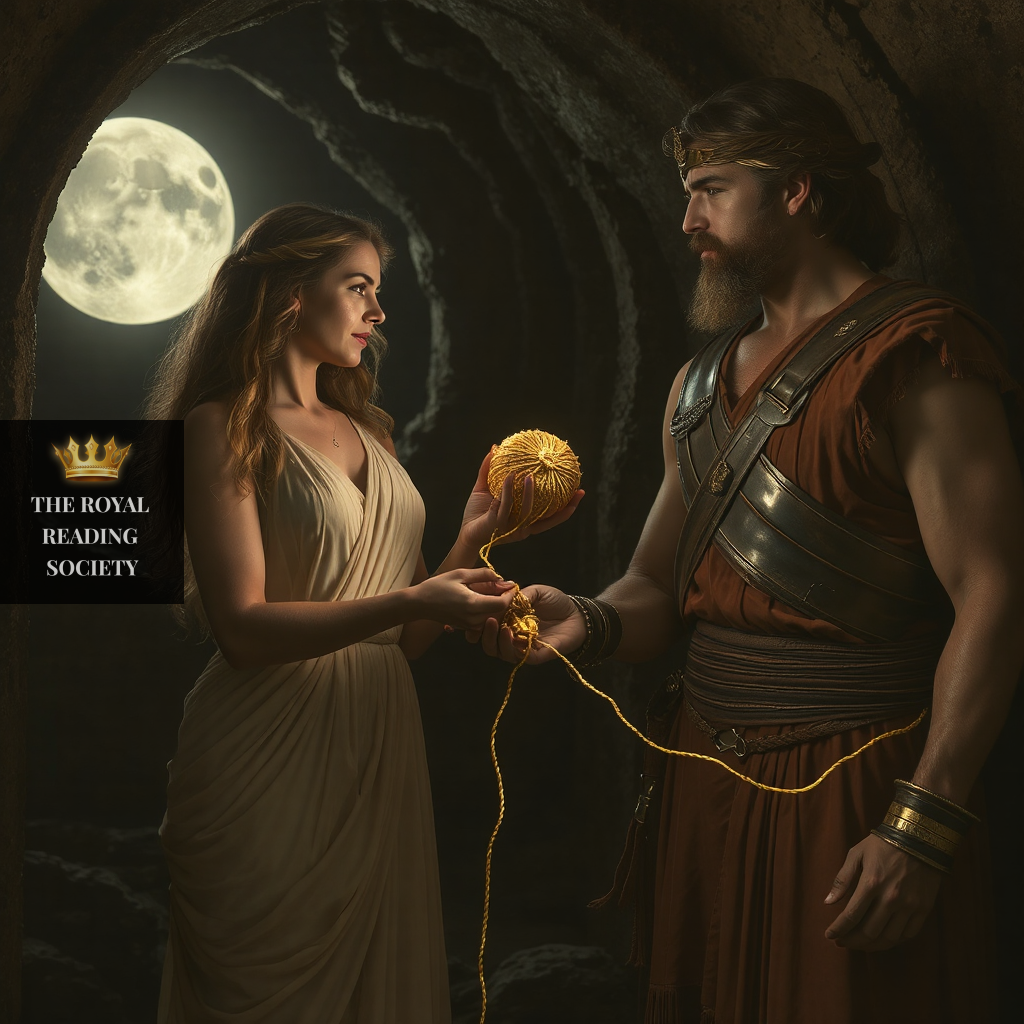
Dearest reader,
It is with great pleasure—and an unabashed inclination toward the scandalous—that I present to you a tale of gods, kings, and forbidden desires. Hold tight to your senses, for we shall traverse the gilded halls of Crete, where passion runs wild and shadows whisper secrets that dare not see the light of day. Shall we begin?
The Bargain of the Gods
Long before Crete was synonymous with labyrinthine intrigue, it was the favored island of Poseidon, god of the seas. Its king, Minos, was a man of ambition, both enviable and reckless. Eager to prove his divine right to the throne, Minos knelt before the crashing waves and called upon the mighty Poseidon.

“Send me a sign,” Minos pleaded, his voice trembling with both reverence and determination. “Let your power crown me king, and I shall sacrifice in your honor the finest bull that walks this earth.”
Poseidon, ever one to indulge in mortal folly, obliged. From the depths of the sea arose a bull unlike any other. Its coat gleamed like polished silver, its eyes held the fury of storms, and its breath carried the salty tang of the ocean. The people of Crete hailed Minos as their rightful king, but, alas, dear reader, men intoxicated by power often falter in their promises.
When the time came to fulfill his oath, Minos found himself unwilling to part with the magnificent beast. “Surely,” he reasoned to himself, “a lesser offering would suffice.” And so, the sacred bull remained in Crete, grazing peacefully under the jealous gaze of the gods.
The Queen’s Betrayal
The gods, as you well know, do not take slights lightly. Poseidon’s wrath was swift and ingenious. The punishment, however, was not aimed at Minos alone. No, the god’s ire fell upon Pasiphaë, Minos’s queen, whose beauty was said to rival even the goddesses themselves.
One fateful night, as the silver bull’s silhouette glimmered under the moonlight, Pasiphaë felt an unnatural yearning stir within her. It was no mere admiration for the creature’s majesty—no, dear reader, it was a longing so carnal, so ferocious, that it clawed at her very sanity.

Try as she might to resist, the queen could not quell the flames ignited by Poseidon’s curse. She sought counsel from Daedalus, the master craftsman whose genius was both revered and feared. “Build me a contraption,” she commanded, her voice trembling with shame and desperation, “one that will bridge the divide between mortal and beast.”
Daedalus, though horrified, dared not disobey. The queen’s power was second only to the king’s, and her desperation was a force to behold. Using his unparalleled skill, he fashioned a hollow wooden cow, lifelike in its details and capable of deceiving even the sharpest eyes.
What followed, dear reader, was an encounter so scandalous it would make even Aphrodite blush. Pasiphaë, cloaked in the wooden guise, consummated her cursed desire. From this union, unnatural and tragic, a child was conceived. A child who would be both a marvel and a monstrosity.
The Birth of the Minotaur
When the child was born, the court was struck dumb with horror. His upper body bore the likeness of a man, but his head and lower limbs were unmistakably those of a bull. Minos, upon beholding the creature, recoiled in disgust. “This abomination,” he spat, “shall be banished from my sight.”
Pasiphaë, however, saw in the child not monstrosity, but innocence. She named him Asterion, after the stars that seemed to shine more brightly on the night of his birth. Yet even her love could not protect him from the cruel fate ordained by his very existence.

Minos, desperate to hide the evidence of the gods’ punishment, summoned Daedalus once more. “Construct a prison,” he commanded, “one from which neither man nor beast can escape.”
And so, the labyrinth was born. Its walls twisted and turned endlessly, a stone maze so intricate that even its creator struggled to navigate it. Into this maze, Asterion was cast, his cries echoing through the cold corridors as his mother wept for the child she could not save.
The Tribute of Athens
Time marched on, and Asterion grew into a formidable creature, both in size and ferocity. His labyrinth became both his home and his prison, a place where he roamed freely but without purpose. Minos, ever the opportunist, saw an opportunity to leverage his shame into power.
After Athens’s defeat in war, Minos demanded a grisly tribute: seven youths and seven maidens to be sent annually as sacrifices to the labyrinth. It was a punishment designed not only to exact vengeance but also to instill fear.

The people of Athens mourned their children but dared not defy Minos. Yet among them was a hero destined to alter the course of this tale: Theseus, son of Aegeus, who volunteered to join the tribute. “I will slay the beast,” he declared, his eyes burning with determination. “And I will end this reign of terror.”
Ariadne’s Thread
It is often said, dear reader, that love and ambition make the most unlikely allies. When Theseus arrived in Crete, he caught the eye of Ariadne, Minos’s daughter. Struck by his bravery and beauty, she resolved to aid him.

“Take this,” she whispered, pressing the thread into his palm. “Tie one end at the entrance, and you shall find your way back.”
Armed with the thread and his sword, Theseus descended into the labyrinth. The battle that ensued was one of both brute strength and cunning. Asterion, though fierce, was no match for Theseus’s resolve. With a final, heart-wrenching blow, the creature fell, his body collapsing into the stone floor.
As Theseus stood over the fallen beast, a strange sadness washed over him. The Minotaur was no monster by choice, but by design. “Forgive me,” Theseus murmured, though his words fell upon ears that would never hear again.
The Aftermath
Theseus emerged victorious, leading the surviving youths to freedom. Yet, as with all tales of gods and men, this victory came at a cost. Ariadne, who had sacrificed everything for Theseus, was abandoned on the island of Naxos, left to weep beneath the indifferent stars.

As for Minos, his labyrinth—and the secrets it housed—remained a symbol of his hubris. Poseidon’s vengeance had been exacted, but at a price that would echo through the ages.
Epilogue: The Echo of Tragedy
And so, dear reader, we arrive at the end of our tale, though its shadows linger still. The labyrinth stands as a testament to the dangers of pride and the gods’ capricious whims. Pasiphaë lived out her days in sorrow, her heart forever tethered to the son she had lost. Minos ruled on, his throne heavy with the weight of his sins.
Theseus, though hailed as a hero, carried the burden of his choices. For even the slayer of monsters must contend with the ghosts they leave behind.
As you close this chapter, consider the threads that bind us—be they spun from love, ambition, or the unyielding will of the divine.
Yours in scandal and storytelling,
Lady Whistledown
Discover more from THE ROYAL READING SOCIETY
Subscribe to get the latest posts sent to your email.
